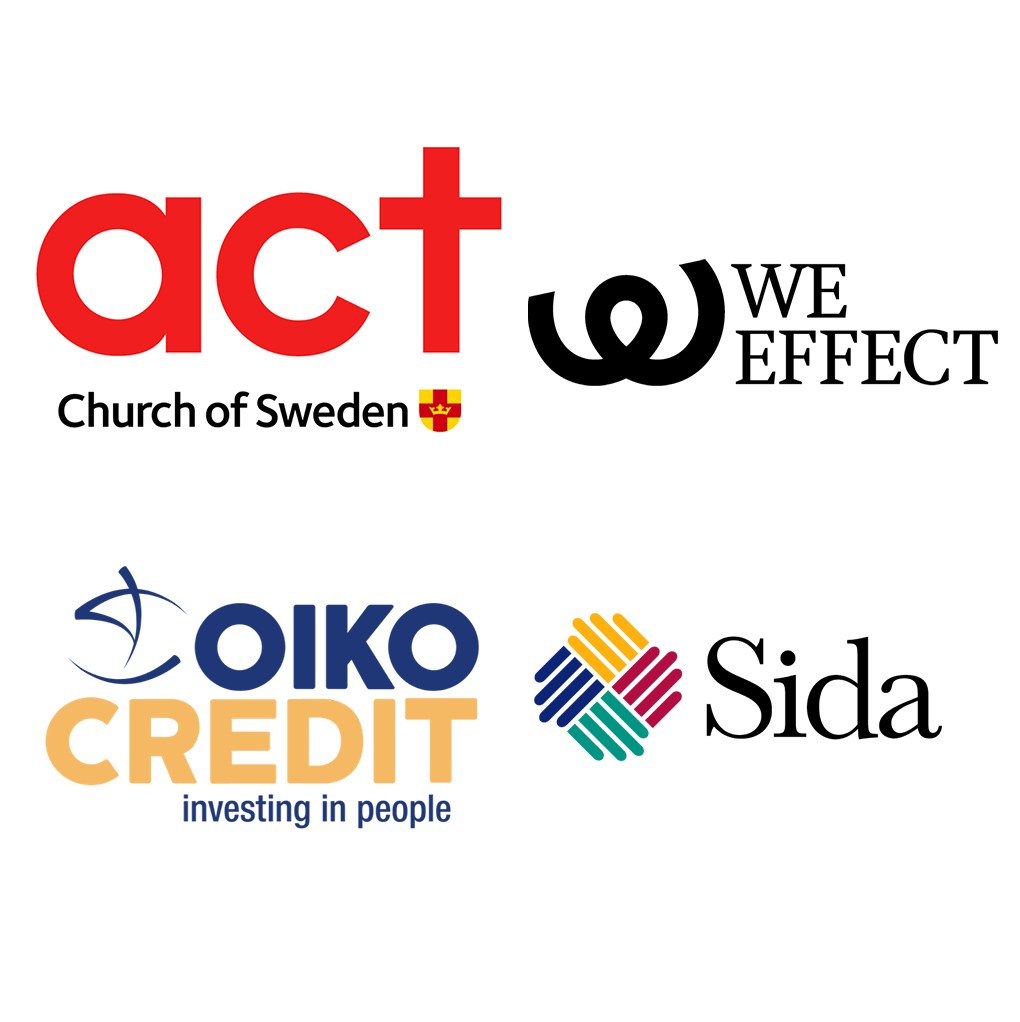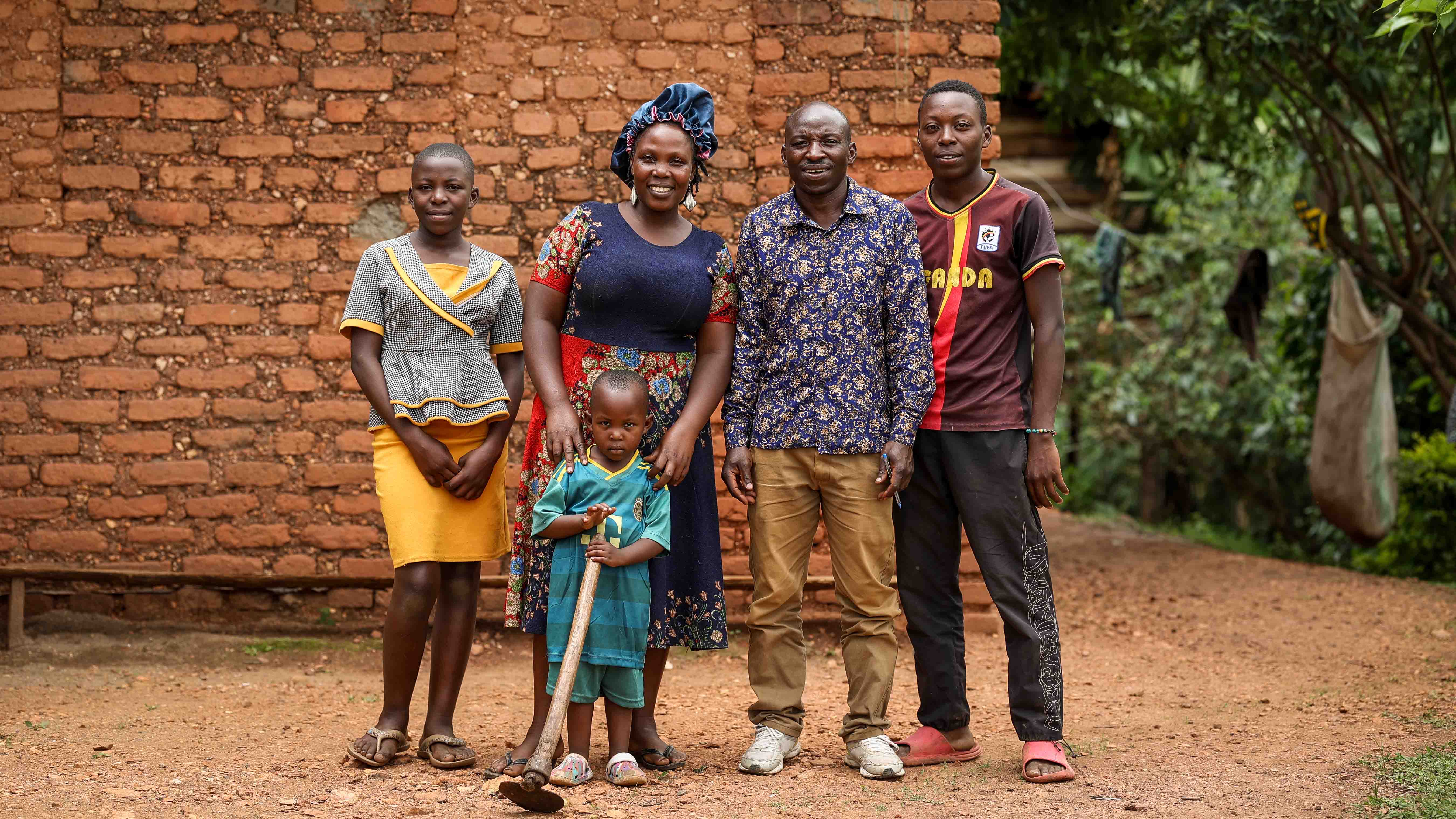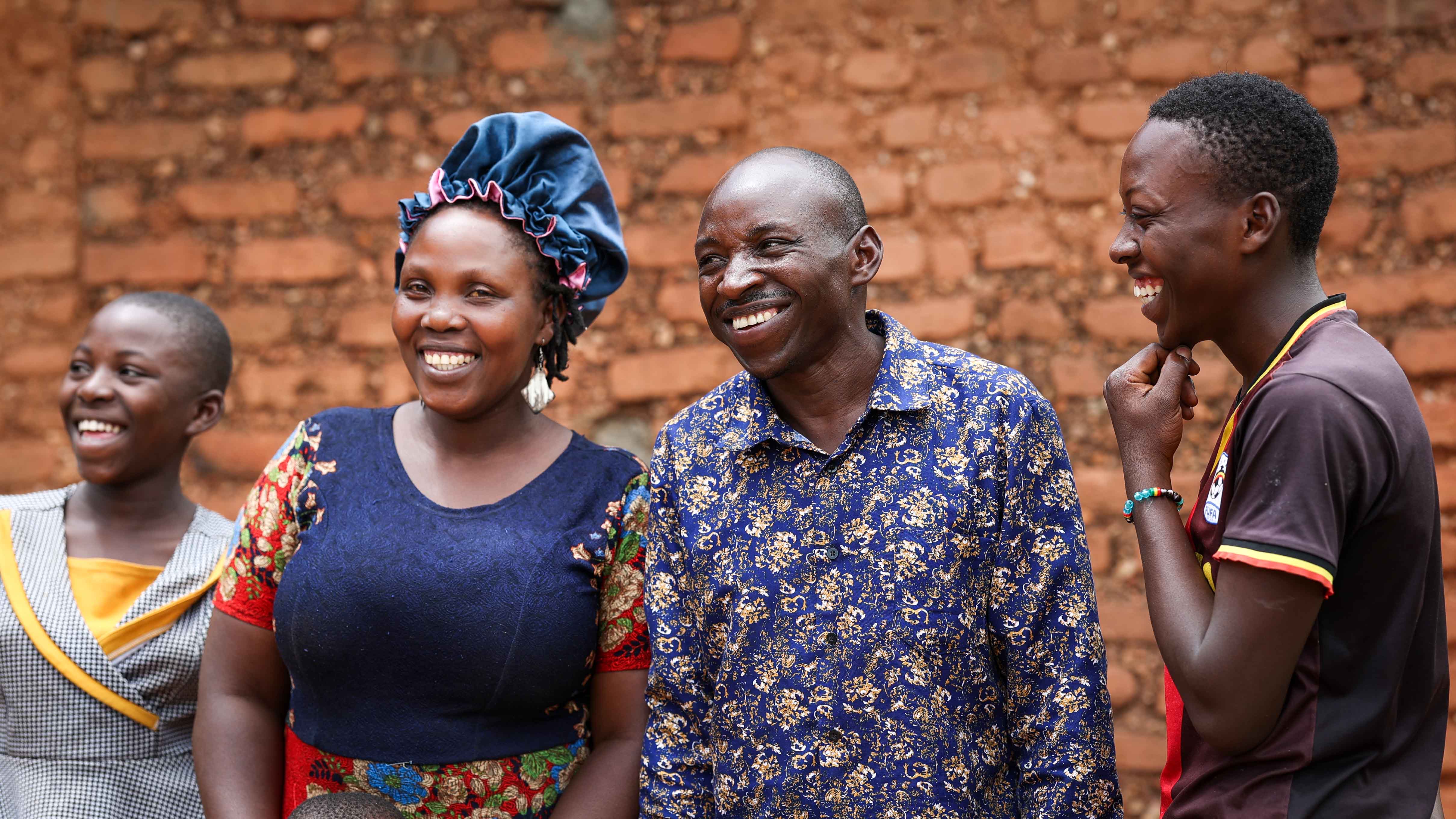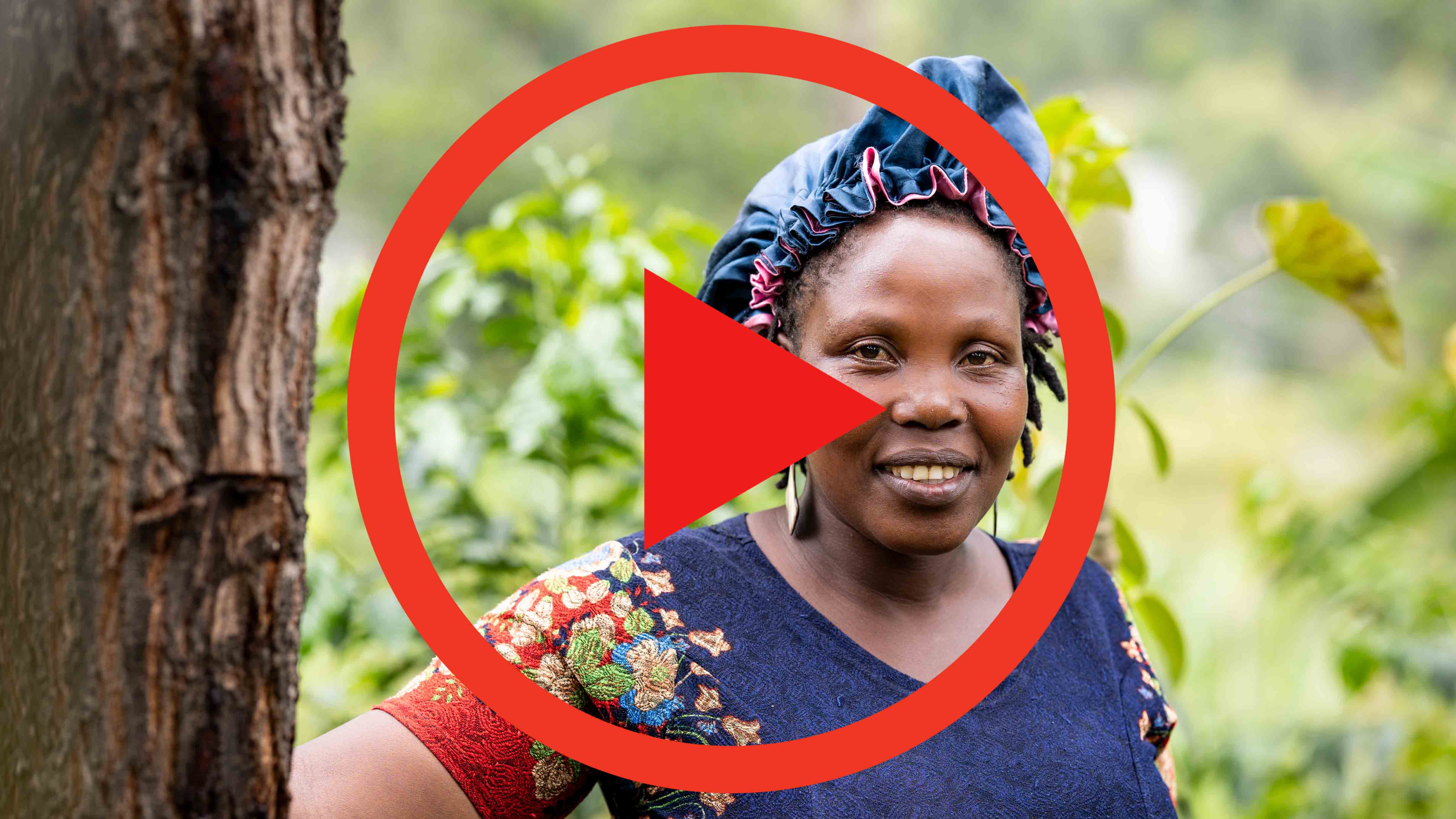|
 |
| |
Feb 2024 |
|
|
 |
Joseline Tuhaise is the vice-chair of the Isebwe Farmers Cooperative Society. Here together with three of her children, Rachel, Joshua and Erik, and her husband Sanairi.
|
| In this newsletter, you’ll meet Joseline Tuhaise, one of our IFIL farmers—a resilient Ugandan mother, small-scale farmer, and entrepreneur. How can farmers like Joseline contribute to global food security? Joseline’s story represents millions of small-scale farms worldwide, whose collective work is indispensable in ensuring global food stability. |
|
|
|
As our vehicle navigates the rugged dirt roads winding through the Rwenzori Mountains, Paul Gumisiriza, We Effect’s project officer overseeing the IFIL project in Uganda, welcomes us to Africa's 'food basket.'
Nestled amongst endless vegetable-fields, this fertile region is vital for agriculture, with coffee being one of its most prized crop.
Paul remarks: "We could feed all of East Africa with food just from Uganda, if our farmers just had the right conditions."
However, the contrasting reality is stark: millions in East Africa are starving, including many farmers themselves, and hunger is still on the rise in Africa (see FAO report below). Investing in these farmers isn't just about alleviating poverty; it's about securing food for our future. |
|
Arriving at the Isebwe village, we meet Joseline Tuhaise, the vice-chair of the Isebwe Farmers Cooperative Society. From a small plot, Joseline and her husband Sanairi’s coffee plantations cascade down into the valley, with the snow-capped peaks of Rwenzori visible on the horizon. It's breathtakingly beautiful, but not the easiest terrain to farm.
Joseline shares, “It’s the coffee that sustains us—it pays for our children's education and provides for our needs. Our parents were coffee farmers and we have grown up on these farms." As she speaks, she serves us their own specialty coffee and some home-produced honey. The sweet aroma of freshly ground coffee fills the room.
"At first, we had only 250 bushes, but now we have 1756" says Sanairi and explains how their farm has flourished, thanks to the cooperative's support and trainings.
|
|
 |
| It's evident that Joseline and Sanairi are both very passionate about the family farm. |
"I actually think farming has made us stronger as a family. It's a lot of work, and we have to work together as a team. Not just us parents, but also the children. I would really like to see more men working together with their wives and helping their families," says Sanairi.
Joseline and Sanairi own their farm together. The small sign doesn't just have his name (which is often the case) but hers as well. Undoubtedly, their partnership is also one of the keys to their success. They are also one of We Effect’s “model couples”, a program to promote gender equality.
The couple are also implementing sustainable and environmentally friendly farming practices, learned through trainings provided by the project, from building terraces to intercropping as well as waste management.
"I'm very proud of what we've accomplished through the cooperative. By working together, we have learned a lot and become more resilient. But we have also been able to overcome the problem of middlemen who are coming to deceive us. Now we know that we're getting the right price for our coffee," Joseline continues. |
|
|
 |
| Watch the video to see Joseline and Sanairi's farm. |
|
However, the good results aren't just visible in the number of coffee trees or the increased price for their coffee. It's also clear that the family is doing well and can dream of a brighter future. One of their business ideas is develop an eco-tourism homestay on their farm. If you ever find yourself in the Rwenzori mountains, you should definitely pay them a visit!
As we bid farewell, their passion and collective success has filled me with hope. Africa's small-scale farmers, with adequate support, can not only transform their own lives but also secure food for generations to come. Together, through initiatives like the IFIL project, we can work towards creating the essential conditions.
/Magdalena Vogt, visiting the Rwenzori mountains on behalf of Act Church of Sweden’s IFIL team. |
|
| In the report The State of Food Security and Nutrition in the World 2023 that was recently published, it is clear that our goals to end hunger by 2030 will continue to remain out of reach if we do not better our efforts. Hunger is still on the rise throughout Africa, Western Asia and the Caribbean. |
|
|
|
|